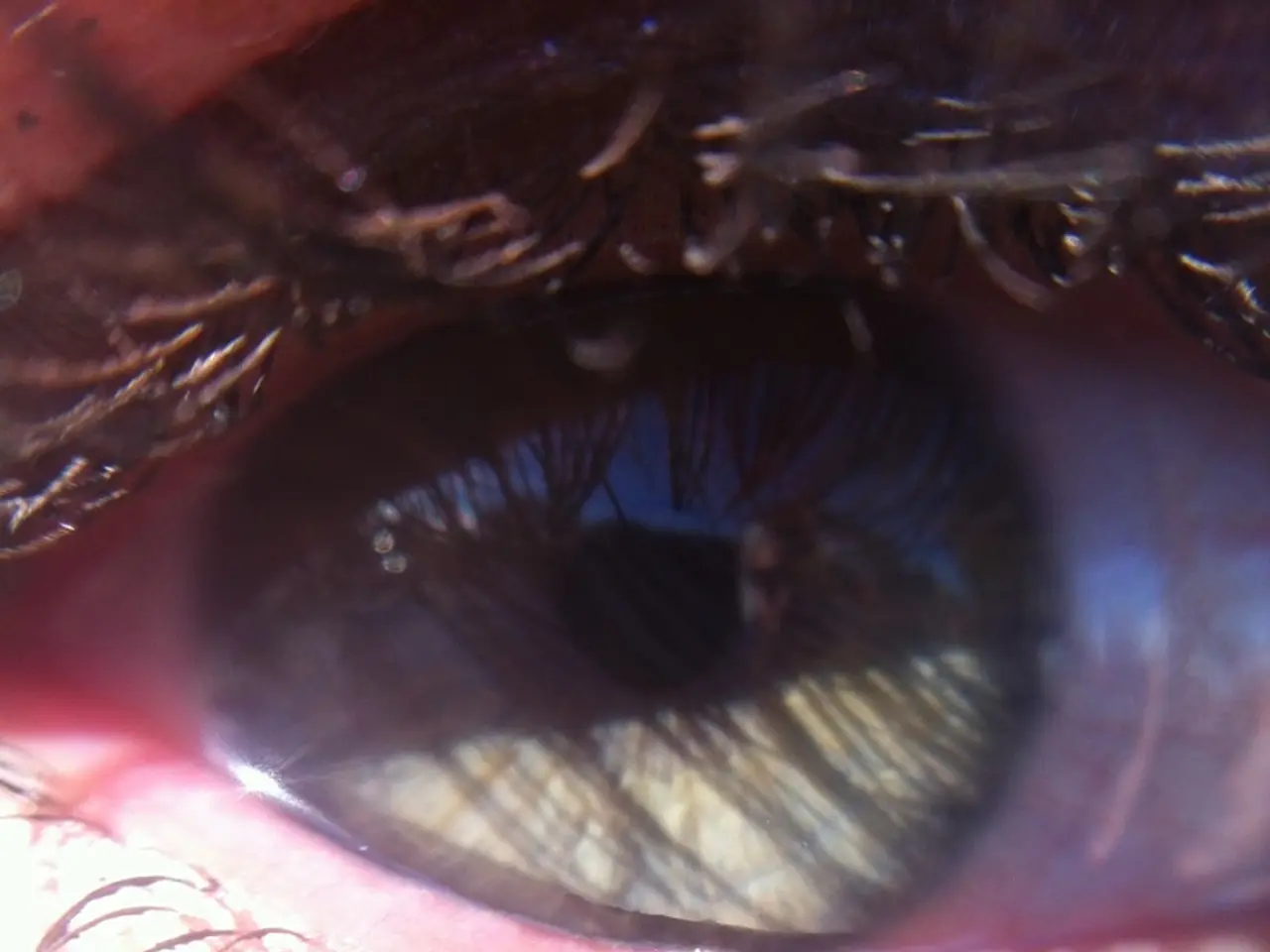Allergic Reactions to Eyelash Extensions: Essential Information
Eyelash extensions, popular for their ability to enhance the appearance of natural lashes, can sometimes trigger allergic reactions in some individuals. This article aims to provide valuable information about the common allergens in eyelash extension adhesives, the symptoms to watch out for, and steps to take to minimise the risk of an allergic reaction.
The primary culprit behind these allergic reactions is cyanoacrylate, a compound found in most lash glues. Repeated exposure over time can lead to fumes that trigger allergic reactions in sensitive individuals [1][3]. Common symptoms of an allergic reaction to these adhesives include eye irritation, redness, itching around the eyelids, swelling of the eyelids or eyes, watery eyes or excessive tearing, inflammation, and discomfort [1][2][3].
To reduce the risk, it is advisable to opt for high-quality, medical-grade adhesives or hypoallergenic eyelash glues designed to minimise irritation, particularly for clients with sensitive skin or known allergies [1][5]. Proper application by a certified technician and good hygiene practices are also crucial to prevent complications [1].
The Board of Barbering and Cosmetology recommends asking the cosmetologist about the ingredients in the glue and using formaldehyde-free products. In the event of an allergic reaction, it is recommended to avoid future eyelash extensions [2].
Allergic blepharitis, a common complication associated with eyelash extensions, can cause symptoms such as tearing, irritation, redness, itchiness, and swelling on both eyelids, which may be worse on one [4]. Severe reactions require medical attention, and a person should consult their doctor for specific treatment [4].
Other potential causes of allergic reactions in the eye or eyelid include smoke, pollen, pollution, perfume, other cosmetic products, and seasonal allergies [5]. To prevent allergic reactions, choose a licensed cosmetologist, check for salon cleanliness, keep eyes closed during application, and avoid contact with glue vapors [6].
In cases of allergic reactions, it's recommended to remove the eyelash extensions and use alternative products like mascara and eyelash curlers [3]. People with certain conditions or risk factors, such as alopecia, trichotillomania, radiation or chemotherapy treatment, latex allergy, eye inflammation, open wounds, or allergies to ingredients in the adhesive or lashes, should avoid getting eyelash extensions [7].
The duration of an allergic reaction to eyelash extensions can range from a few hours to a few days, depending on severity. An allergic reaction can occur during the application process or take between several hours and a few days to occur, either from direct contact with the glue or the vapors of the glue [1].
In addition to formaldehyde and cyanoacrylate, a person may be allergic to lead or benzoic acid found in some cosmetic products [8]. By selecting safer, hypoallergenic products and ensuring expert application, we can help prevent allergic reactions to eyelash extension adhesives.
References: [1] https://www.ncbi.nlm.nih.gov/pmc/articles/PMC7556967/ [2] https://www.ncbi.nlm.nih.gov/pmc/articles/PMC6506981/ [3] https://www.ncbi.nlm.nih.gov/pmc/articles/PMC5424470/ [4] https://www.ncbi.nlm.nih.gov/pmc/articles/PMC6199249/ [5] https://www.ncbi.nlm.nih.gov/pmc/articles/PMC6369763/ [6] https://www.ncbi.nlm.nih.gov/pmc/articles/PMC6506981/ [7] https://www.ncbi.nlm.nih.gov/pmc/articles/PMC6440039/ [8] https://www.ncbi.nlm.nih.gov/pmc/articles/PMC6506981/
- For individuals with skin sensitivities or known allergies, using medical-grade adhesives or hypoallergenic eyelash glues can minimize the risk of an allergic reaction, especially during eyelash extension application.
- In addition to eye health, it's crucial to consider mental health and overall health-and-wellness factors when considering eyelash extensions, as certain medical-conditions such as alopecia, trichotillomania, and latex allergy can increase the risk of adverse reactions.
- Alopecia sufferers and those undergoing radiation or chemotherapy treatment, as well as people with open wounds, eye inflammation, or sensitivities to ingredients in the adhesive or lashes, should reconsider getting eyelash extensions, as they may be more susceptible to allergic reactions.




